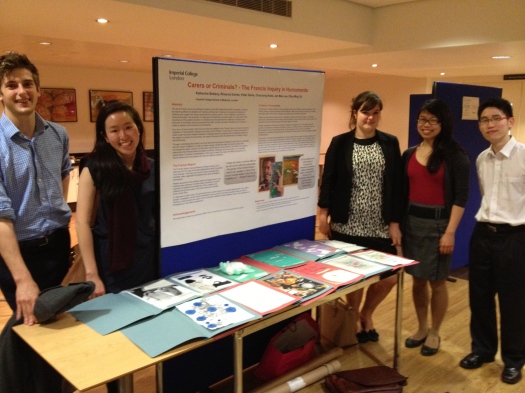This summer I’m pleased to be part of the extension of courses at City Lit reaching into the field of science. City Lit is London’s centre for adult learning, offering part-time and short courses in a huge range of fields.
In July, I’ll be leading an exploration into ‘London’s Curiosity Cabinets’ as well as offering a Medical Humanities course.
More here on London’s Curiosity Cabinets.
More here on Medical Humanities.
These courses are for anyone, though I would especially encourage those in the medical profession to take a look at the Medical Humanities course.
I’m also pleased to note that the Public Astronomer at the Royal Observatory Greenwich, Dr Marek Kukula, is going to be running a summer course on astronomy, and Wellcome Trust Public Engagement Fellow, medical historian Dr Richard Barnett, will be giving guided walks & lectures on the history of medicine in London. Go to City Lit Courses and click on the ‘Science and Nature’ section for more.
I’d like to flag up a rewarding outcome of recent Medical Humanities teaching: For the third year in a row, I was invited by Giskin Day, course co-ordinator for Imperial College London’s Medical Humanities, to give a workshop on poetry and medicine to medical students. For part of the afternoon, I introduced them to the marvellous, unique book – what I would call an art book – A Humument, by Tom Phillips. There is an excellent review of it here: ‘Double Act’ by Adam Smyth, LRB Oct 2012.
So far, I’ve found students really enjoy being introduced to and creating projects using the idea of A Humument; my Global Health students also responded enthusiastically to it this year. In fact, it’s become a verb: we ‘Humumentize’ a piece of writing that is medically relevant, combining the art of Phillips’s ‘Humumentizing’ his selected novel (A Human Document, from whence the title ‘Humument’ comes,) with the medicine of a medical text. With Giskin’s class, we used extracts from Gray’s Anatomy, including images.

A group of students from the class then decided to take pieces from The Francis Inquiry (an essential and harrowing report on the failing of care in the Mid-Staffordshire NHS Foundation Trust – I recommend the video on the above link,) to create ‘Carers or Criminals? The Francis Inquiry in Humuments,’ which they presented as a poster at the 2013 International Symposium on Poetry & Medicine.
They said that by focussing closely on selected elements of the text, and ‘pulling out’ (or ‘excavating,’ as Phillips says, like a geologist or sculptor,) fragments of text that stood out to them, they were able to interpret the writing in a way that they hoped brought out the essence, or most important, or most poignant parts, of it. I pointed out how this act – shaving away all the words they felt were not absolutely necessary – was a type of poetry, and one of the students called it ‘found poetry’.
The students also mis-interpreted something in a very positive way: referencing the original title of Phillips’s treated novel (A Human Document,) these Medical Humanities students felt they were ‘discovering’ the ‘human documents’ within the Francis Inquiry: the human stories, and stories of humanity, that otherwise might have been lost amidst a sea of mistakes and pain in danger of blending into one anonymous voice of discontent.
This is a rewarding outcome and encouraging early experience in my teaching, and I’m proud of the students for their creative thinking and work. It is important to remember that any text we take up and ‘treat’ must be respected and that its original intent not be lost, but I think that ‘Humumentizing’ a work can allow all of us to shed new and important light on something that might be dense, technical, or difficult to approach in the traditional manner. It is also creative and fun, and these aren’t elements to be cast aside lightly – the students working on this project will always think of The Francis Inquiry in a uniquely critical way. Well done.
